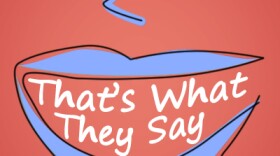Bupkis. Zip, nada, zilch.
Those are all words that mean nothing – as in you've got nothing.
University of Michigan English Professor Anne Curzan says a game of cribbage with her mother led to a discussion about the word bupkis, and where it came from.
"It's such a great word. It's clearly Yiddish," Curzan says. "And then we started talking about other words for 'nothing.' There's zero, which is borrowed from French in the 17th century, but it goes back to Arabic. Nada, which is Spanish, goes back to the 19th century."
Zip shows up around 1900, Curzan says, while zippo is quite new.
"I was surprised to see how recent the word zilch is. The first time it's used to mean zero is in 1960," Curzan says.
Lots of words we use today come from Yiddish.
"Oy seems to be one of the common ones," Curzan says. "Then there's chutzpah, which takes off starting in the 1970s, but it showed up in American English in 1945."
Then there are a couple of words that used to be fairly taboo in Yiddish.
"There's schmuck, as in an an annoying person or a fool, and a putz, also a fool," Curzan explains.
On the nicer side, there's mensch, a word to describe an honest, good person.
And tush, which comes from tukhus – as in "you bet your tukhus" first shows up in 1914.






